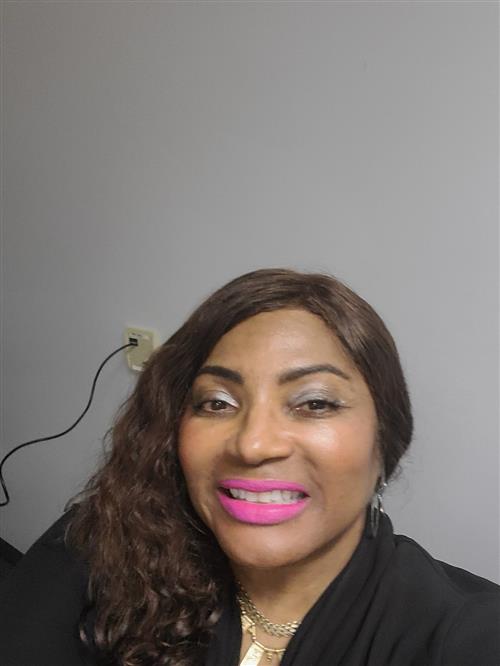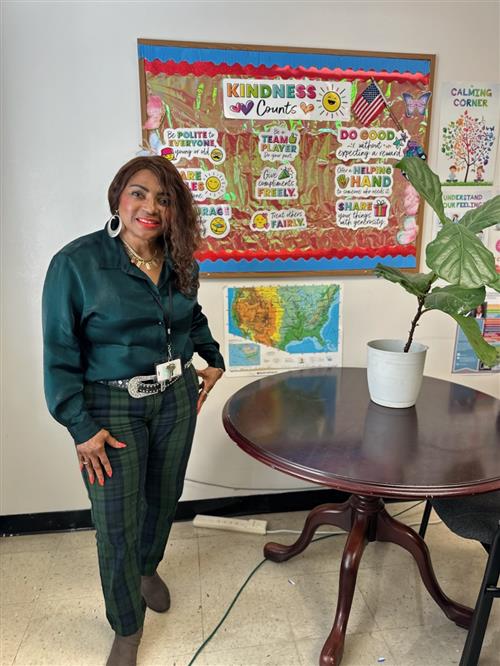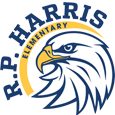-
Ms. Margie N. Hall
NES Counselor
Harris RP Elementary

About Ms. Hall:
Professional Education
Graduate of Grambling State University
Bachelor’s Degree in Business Education
Master’s degree in School Counseling at Texas Southern University
Certification in Elementary Education (K- 8) Texas Southern University
Master’s degree in Principalship at Texas Southern University
SBEC Certification: School Counselor K-12
SBEC Certification: Elementary Education K-8
Counseling Services
What do elementary school counselors do?
Teach classroom guidance lessons
Facilitate short-term small group counseling
Work collaboratively with teachers and staff
Consult with peers
Provide information and/or referrals for community resources to families
Why do we need elementary school counselors?
A deliberate and comprehensive approach to teaching children social and emotional skills can raise grades and test scores.
Students who receive social skills instruction do better academically and socially, but the reverse is not true (academic instruction does not increase social/emotional skills).
There is a strong connection between emotions and learning. Students who can recognize and manage strong emotions are better learners.
Students who attend schools with a comprehensive guidance program do significantly better on standardized test such as the ITBS and STAAR than students who attend schools without a comprehensive guidance program. The longer the students are in schools with comprehensive guidance programs, the more they outperform their peers on standardized tests.
Prosocial behavior exhibited by students in the classroom were found to be better predictors of academic achievement than were their standardized scores.
Guidance Lessons
Guidance lessons are an integral part of the elementary school counseling program and important to every student’s academic success. One of the most effective ways for school counselors to help prevent academic problems is by discussing self-esteem issues such as peer relationship, stress, or dealing with feelings and emotions in large group guidance lessons in the classroom.
Small Group Counseling
The purpose of small group counseling is to complement and enhance student’s learning by improving their perceptions, attitudes, and behaviors. Small group counseling provides a safe setting where children, along with their peers, can increase their self-awareness and improve their cooperation and communication skills. The children can learn from each other. Ultimately, the goal of small group counseling is to prevent problems in the future by teaching children new skills. Every child can benefit from participation in a small group. Students can be invited to join a group by parent request, teacher or counselor suggestion, or by the students themselves.
Individual Counseling
Elementary school counselors are available to meet individually with a student in circumstances when a student’s educational success is being impacted. The school counselor spends time working with individual students to improve their social skills, discuss feelings, and to empower problem solving methods
Elementary school counselors assist ALL children. While a counselor cannot provide on-going counseling, it may be appropriate for a student to receive short-term individual counseling. When more attention and interventions are required, school counselors can act as a referral agent for parents to access counseling services within the community.
Collaborate with Teachers and Staff
Both teachers and counselors have similar goals: the educational success of each student. So, it is important that school counselors collaborate with teachers and administrators to promote student learning. If a student is having problems in a classroom, school counselors will join with teachers to come up with some practical strategies which will remove educational barriers and enhance the learning environment of that student.
Consult with Parents
Parents and school counselors speak with each other to help the child/student on a variety of issues such as new school registration, transition, special needs, family transition, and crisis. Studies have shown that children have greater academic achievement when their parents are involved in their education. Parental involvement is critical to helping a child be a successful student. Both parents and counselors can share information with each other to help meet the needs of the student. Additionally, school counselors can help put parents in touch with community resources, if the need arise.
Community Resources
School counselors can provide short-term individual counseling for students, but when more intervention is required, they can coordinate referrals to community agencies.
Curricula and Programs
National Standards: The American School Counselor Association (ASCA) is an organization that supports school counselors’ efforts to help students in their academic, personal/social, and career development. ASCA has developed national standards for all students, which define the knowledge or skills students should acquire from the result of participating in a school counseling program. The guidance lessons taught in the classrooms are organized and influenced with these national standards in mind.
Academic Development
Students will acquire the attitudes, knowledge, and skills contributing to effective learning in schools and across the lifespan. Students will complete school with the academic preparation essential to choose from a wide range of substantial post-secondary options, including college.
Career Development
Students will acquire the skills to investigate the world of work in relation to knowledge of self and to make informed career decisions. Students will employ strategies to achieve future career goals and success and satisfaction. Students will understand the relationship between personal qualities, education, training, and the world of work.
Personal / Social Development
Students will acquire the knowledge, attitude, and interpersonal skills to help them understand and respect self and others. Students will make decisions, set goals, and take necessary actions to achieve them. Students will understand safety and survival skills.
KIDS HEALTH
Kid’s Health (https://kidshealth.org/en/kids/feeling/) This website covers topics for the health of the body, but also the mind. It has a special category
About “Dealing with Feelings” with articles about school, home and family, emotions and behaviors, and friends.
I will be in the classroom during elective time to teach topics such as social skills, conflict resolution, handling bullies, healthy lifestyles, personal safety, and study skills. Each grade is introduced to the topics appropriate to their developmental needs. There will be opportunities for small groups for behavior, “lunch bunch” for meeting new students or addressing short-term issues. If you have specific concerns about your child which may impact his/her school success, please call to set up an appointment. I am here each day from 7:15 am to 4:30 pm and can be reached at 713-450-7100. I do not answer the phone when I am with a student or class, so please leave a voice mail. I am excited about the new school year and all the possibilities that lie ahead. Please let me know if there is anything I can do to help.

CONTACT INFORMATION
Phone Number 713-450-7100
Harris RP Elementary School
1262 Mae Drive
Houston, TX 77015
Select a School...
Select a School
- Alcott Elementary School
- Almeda Elementary
- Alternative Certification Program
- Anderson Elementary School
- Arabic Immersion Magnet School (AIMS)
- Ashford Elementary
- Askew Elementary School
- Atherton Elementary
- Attucks Middle School
- Austin High School
- Baker Montessori
- Barbara Bush Elementary
- Barbara Jordan Career Center
- Barrick (C. E.) Elementary
- Bastian Elementary School
- Baylor College of Medicine Academy at James D Ryan MS
- Baylor College of Medicine Biotech Academy at Rusk
- Bellaire High School
- Bellfort Early Childhood Center
- Benavidez Elementary
- Benbrook Elementary
- Berry Elementary
- Billy Reagan K8 Educational Center
- Frank Black Middle School
- Blackshear Elementary
- Bonham Elementary School
- Bonner Elementary
- Braeburn Elementary
- Briargrove Elementary School
- Briarmeadow Charter
- Briscoe Elementary
- Brookline Elementary
- Browning Elementary
- Bruce Elementary
- Burbank Elementary
- Burbank Middle
- Burrus Elementary
- Cage Elementary
- Career Readiness
- Carnegie Vanguard High School
- Carrillo Elementary
- Challenge Early College High School
- Clemente Martinez Elementary School
- Clifton Middle School
- Codwell Elementary
- Community Services
- Condit Elementary
- Coop Elementary
- Cornelius Elementary
- Crespo Elementary
- Crockett Elementary School
- Cullen Middle School
- Cunningham Elementary
- César E. Chavez High School
- Daily, Ray K. Elementary
- David G. Burnet Elementary
- Davila Elementary
- De Chaumes Elementary
- De Zavala Elementary
- Deady Middle School
- DeAnda Elementary School
- Distrito Escolar Independiente de Houston
- Dogan Elementary School
- Durham Elementary
- Durkee Elementary
- East Early College High School
- Eastwood Academy
- Edison Middle School
- Elementary DAEP
- Eliot Elementary School
- Elmore Elementary School
- Elrod Elementary School
- Emerson Elementary
- Energized for Excellence
- Energy Institute High School
- McGowen Elementary
- Farias ECC
- Cook Elementary
- Field Elementary School
- Fleming Middle School
- Foerster Elementary
- Fondren Elementary
- Fondren Middle School
- Fonville Middle School
- Fonwood Early Childhood Center
- Forest Brook Middle School
- Franklin Elementary
- Frost Elementary
- Furr High School
- Gabriela Mistral CEC
- Gallegos Elementary
- Garcia Elementary School
- Garden Oaks Montessori
- Garden Villas Elementary
- Golfcrest Elementary
- Gregg Elementary
- Gregory-Lincoln Education Center
- Gross Elementary
- Halpin Early Childhood Center
- Hamilton Middle School
- Harper DAEP High School
- Harris (John R.) Elementary
- Harris (Roland P.) Elementary School
- Hartman Middle School
- Hartsfield Elementary School
- Harvard Elementary School
- Health and Medical Services
- Heights High School
- Helms Elementary School
- Herod Elementary School
- Herrera Elementary School
- High School Ahead Academy Middle School
- High School for Law and Justice (HSLJ)
- Highland Heights Elementary
- Hilliard Elementary School
- Hines Caldwell Elementary School
- HISD Benefits
- HISD Human Resources
- HISD Miles Ahead Scholars
- HISD School Choice
- HISD School Website Resources
- Hobby Elementary School
- Hogg Middle School
- Holland Middle School
- Horn Elementary
- Houston Academy for International Studies
- Isaacs Elementary
- J.P. Henderson Elementary
- Long Academy
- Janowski Elementary
- Jefferson Elementary School
- John G. Osborne Elementary
- Jones Futures Academy
- Kashmere Gardens Elementary Fine Arts Magnet
- Kashmere High School
- Kate Bell Elementary
- Smith, K. Elementary
- Kelso Elementary
- Kennedy (John F.) Elementary
- Ketelsen Elementary
- Key Middle School
- Kinder High School for the Performing and Visual Arts
- Kolter Elementary
- Lamar High School
- Lanier Middle School
- Lantrip Elementary
- Las Americas
- Laurenzo Early Childhood Education Center
- James H. Law Elementary
- Lawson Middle School
- Lewis Elementary
- Liberty High School Homepage
- Lockhart Elementary School
- Longfellow Elementary School
- Looscan Elementary
- Love Elementary School
- Lovett Elementary School Fine Arts Magnet
- Lyons Elementary School
- Mabel B. Wesley Elementary School
- MacGregor Elementary School
- Mading Elementary STEM Academy
- Madison (James) High School
- Mandarin Immersion
- Marcellus Elliot Foster Elementary
- Twain (Mark) Elementary
- Mark White Elementary School
- Marshall Middle Academy of Fine Arts
- Martin Luther King, Jr. Early Childhood Center
- McNamara Elementary
- McReynolds Middle School
- Medicaid Finance & Consulting Services
- Memorial Elementary
- Meyerland Performing and Visual Arts Middle School
- DeBakey High School for Health Professions
- Mickey Leland College Preparatory Academy for Young Men
- Gulfton
- Middle College at Felix Fraga
- Milby High School
- Milne Elementary School
- Mitchell Elementary School
- Montgomery Elementary
- Moreno, Joe E. Elementary
- Henderson Elementary School
- Neff Early Learning Center
- Neff Elementary School
- North Forest High School
- North Houston Early College HS
- Northline Elementary
- Northside High School
- Oak Forest Elementary School
- Oates Elementary
- Ortiz Middle School
- Paige Elementary
- Park Place Elementary School
- Parker Elementary
- Henry Middle School
- Patterson Elementary
- Paul Revere Middle School
- Peck Elementary
- Pershing Middle School
- Petersen Elementary
- Pilgrim Academy
- Pin Oak Middle School
- Piney Point Elementary School
- Pleasantville Elementary School
- Poe Elementary
- Port Houston Elementary School
- Project Chrysalis Middle School
- Pugh Elementary
- Raul Martinez Elementary
- Red Elementary
- Redesign
- Reynolds Elementary
- River Oaks Elementary IB World School
- Roberts Elementary
- Robinson Elementary
- Rodriguez, Sylvan Elementary
- Roosevelt Elementary
- Ross (Betsy) Elementary School
- Rucker Elementary
- Sam Houston Math, Science and Technology Center
- Sanchez Elementary
- Scarborough Elementary
- Scarborough High School
- Scroggins Elementary School
- Secondary DAEP
- Seguin Elementary
- Shadowbriar Elementary
- Shadydale Elementary School
- Sharpstown High School
- Sharpstown International School
- Shearn Elementary School
- Sherman Elementary School
- Sinclair Elementary School
- South Early College High School
- Southmayd Elementary School
- Sterling Aviation High School
- Stevens Elementary
- Stevenson Middle School
- Student Supports
- Students
- Sugar Grove Academy Middle School
- Sutton Elementary
- T.H. Rogers School
- Tanglewood Middle School
- Texas Connections Academy at Houston
- Texas Education
- The Rice School La Escuela Rice
- The School at St George Place
- Thomas Middle School
- Thompson Elementary
- Thurgood Marshall Elementary School
- Tijerina Elementary
- Tinsley Elementary
- Travis Elementary School
- Valley West Elementary
- Virgil I. Grissom Elementary School
- Wainwright Elementary
- Walnut Bend Elementary
- Waltrip High School
- Washington High School
- Welch Middle School
- West Briar Middle School
- West University Elementary School
- Westbury High School
- Westside High School
- Wharton Dual Language Academy
- Wheatley High School
- Whidby Elementary
- White (Ed) Elementary
- Whittier Elementary School
- Williams Middle School
- Windsor Village Vanguard Magnet Elementary
- Wisdom High School
- Woodson PK-5 Leadership Academy
- Worthing High School
- Yates High School
- Navarro Middle School
- Young Elementary
- Young Scholars Academy for Excellence
- YWCPA







